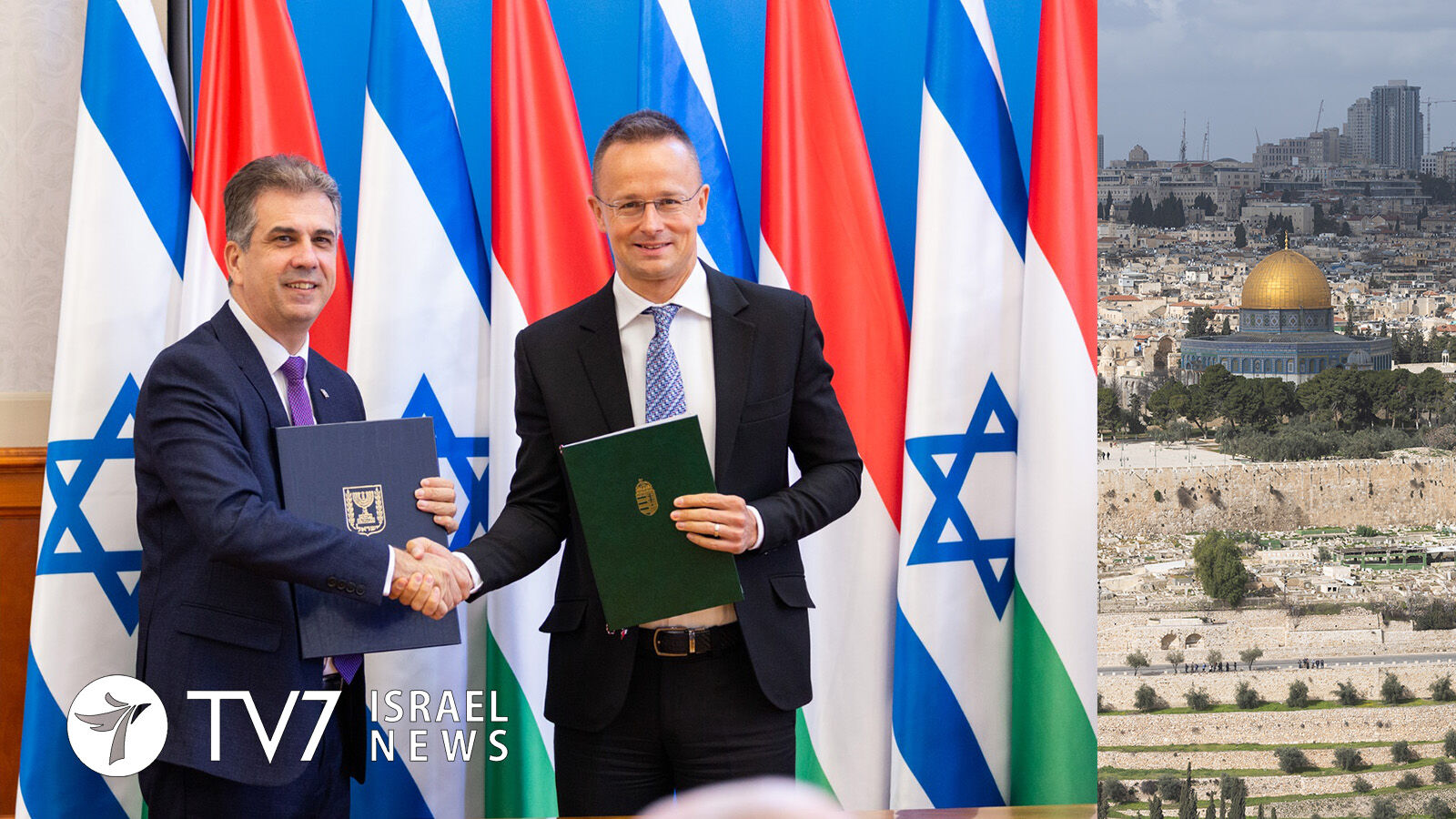Until now, Hungary has maintained an official representative office in the Israeli capital.
By Jonathan Hessen and Erin Viner
Jerusalem and Budapest have reached an agreement in principle for the relocation of the Hungarian Embassy in Tel Aviv to Jerusalem.
Israeli Foreign Minister Eli Cohen was apprised of the decision by his counterpart Péter Szijjártó during a meeting in the Hungarian capital.
Sources in the Hungarian government said the development follows efforts by Israeli Prime Minister Netanyahu and is due to his personal relationship with Hungarian Prime Minister Viktor Orbán.
Israeli officials have been led to understand that the new diplomatic compound will be opened in the Israeli capital sometime later this year after location of a suitable structure. The prevailing assessment is that the Hungarians will hold off on making a formal declaration about the move until a more ceremonial occasion such as a meeting between Netanyahu and Orbán.
Should Hungary follow through on its decision, it would become the fifth foreign nation to relocate an embassy to the Israeli capital – joining the United States, Guatemala, Kosovo and Honduras. Last November, the National Assembly of Azerbaijan approved the opeining of an embassy at an as of yet undisclosed location in Israel, marking the first such declaration by a Shi’ite Muslim-majority nation.
During the bilateral talks, Hungarian Foreign Minister Szijjártó noted the European Union’s biased stance against Israel, while affirming the Jewish State can count on his nation’s support in international forums.
Foreign Minister Cohen responded by affirming, “Hungary stands by Israel for many years, and there is strategic importance to bolster our relations with pro-Israeli countries in central Europe. I thank Hungary’s Foreign Minister for his support of Israel in the struggle against the International Criminal Court and also his enlisting to Israel’s initiative to condemn the Palestinian Authority for paying salaries to terrorists who murder Jews.”
Minister Cohen underscored that Israel intends to “provide assistance to countries that are supportive of Israel in Europe” to overcome the two current major challenges in the energy and security sectors.
Jerusalem’s top diplomat also met with Hungarian President Katalin Novák during his visit to Budapest.
As part of as part of a wider four-day tour of central Europe that also included stops in Croatia and Slovakia, the Israeli Foreign Minister concluded the final leg of his European tour in Austria.
Taking the opportunity to reflect the latest data he gleaned during his work meetings abroad, he stressed the urgency of taking action against Iran’s atomic development program – which has now seemingly surpassed any possible civilian application.
“This is the time to take tough diplomatic decisions against Iran’s nuclear program in a matter that will prevent a future war,” urged Minister Cohen, revealing that this was the most critical message he relayed to his European counterparts during the visit abroad, as well as the President of the Austrian Parliament.
The latest call from Israel on the international community to act now to prevent Iran from obtaining atomic weapons comes just ahead of next week’s summit in Vienna by the International Atomic Energy Agency (IAEA) Board of Governors on the Islamic Republic’s controversial development program.
